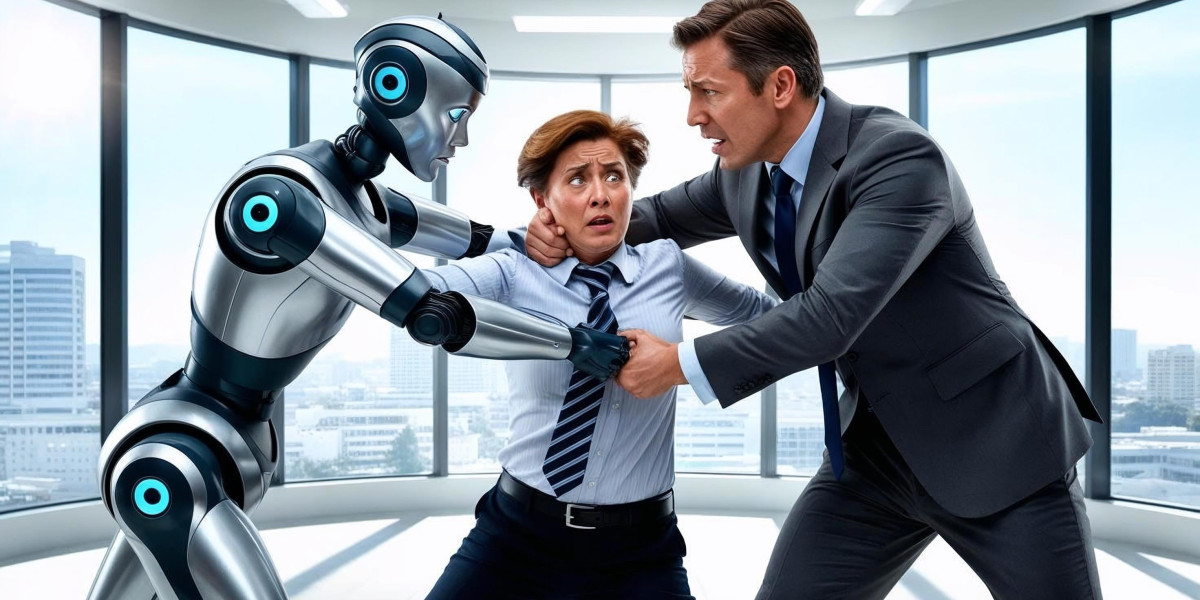The Creative Cliffhanger: Will AI Steal Our Artistic Souls (and Jobs)?
The hum of artificial intelligence is growing louder in the creative industries. Once confined to science fiction, AI is now demonstrably capable of generating text, producing images, and even composing music.1 This burgeoning capability has sparked both fascination and fear, particularly among creative professionals like resume writers, content creators, copywriters, editors, and even visual artists.2 Is our work, our passion, on the precipice of being automated?
The anxieties are understandable. We've witnessed AI tools churning out articles, crafting marketing copy, and even designing basic logos with impressive speed and, often, at a lower cost.3 For those who meticulously hone their craft, the prospect of an algorithm stepping in can feel like a devaluation of years of dedication and nuanced understanding. The fear isn't just about losing a job; it's about the potential erosion of the human element – the empathy, the unique perspective, the subtle artistry that often underpins truly impactful creative work.
However, the narrative of complete AI takeover might be too simplistic. While AI excels at certain tasks – processing large amounts of data, identifying patterns, and generating text based on prompts – it currently lacks the genuine emotional intelligence, lived experience, and subjective understanding that often elevates human creativity.4 Can an algorithm truly grasp the subtle nuances of a compelling personal narrative in a resume, the persuasive power of emotionally resonant content, or the artistic vision behind a truly original piece of writing?
So, what can creative professionals do to safeguard their job security in this evolving landscape?
- Embrace Augmentation, Not Just Automation: Instead of viewing AI as a replacement, consider it a powerful tool. Learn to leverage AI for tasks like research, brainstorming, and initial drafts. This allows you to focus on the higher-level, uniquely human aspects of your work – strategy, emotional depth, and original conceptualization.5 For a resume writer, AI could help analyze job descriptions and identify keywords, freeing them to craft a compelling narrative that showcases the candidate's unique value proposition.6 For a content writer, AI could assist with initial research, allowing them to focus on insightful analysis and engaging storytelling.7
- Cultivate Uniquely Human Skills: Double down on the skills that AI currently struggles with:
- Critical Thinking and Strategic Insight: Understanding the "why" behind the creative brief and developing overarching strategies.
- Emotional Intelligence and Empathy: Connecting with audiences on a human level, understanding their needs and motivations.
- Originality and Conceptualization: Bringing truly novel ideas and perspectives to the table.
- Complex Problem-Solving: Tackling ambiguous creative challenges that require nuanced human judgment.
- Collaboration and Communication: Effectively working with clients and teams, understanding their needs through human interaction.
- Specialize and Niche Down: Generalist creative roles might be more susceptible to certain AI applications. By developing deep expertise in a specific niche or style, you become harder to replace. For example, a resume writer specializing in executive-level personal branding or a content writer focused on highly technical B2B content brings a level of specialized human understanding that AI currently lacks.8
- Focus on the Human Connection: In client-facing roles like resume writing or creative consulting, the human connection, trust-building, and personalized understanding remain invaluable. Emphasize your ability to truly listen to and understand your clients' needs in a way that an algorithm cannot.
- Stay Adaptable and Learn Continuously: The AI landscape is rapidly evolving. Embrace a mindset of continuous learning, staying updated on new tools and how they can be integrated into your workflow.
The rise of AI in creative fields presents both challenges and opportunities. While the fear of job displacement is valid, it's crucial to remember the inherent value of human creativity, empathy, and nuanced understanding. By adapting our skills, embracing AI as a tool, and focusing on our uniquely human strengths, creative professionals can not only survive but thrive in this evolving creative ecosystem. The future isn't about human versus AI, but rather about how we can creatively collaborate.
What are your thoughts on this? Are there other ways creative professionals can adapt?
